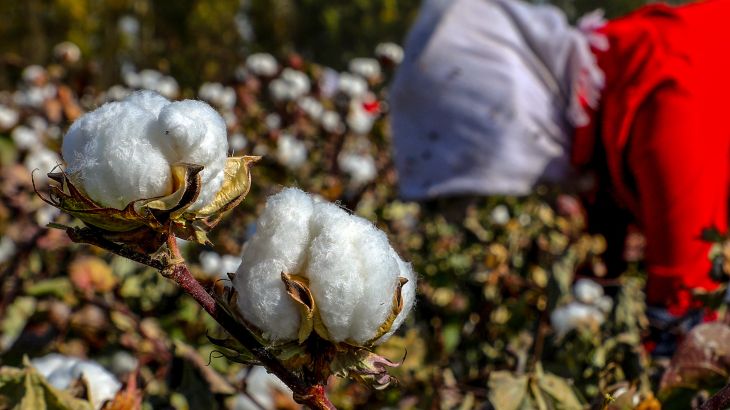
Forced Uighur labour in China: How can companies & shoppers help?
On Tuesday, July 5, 2022 at 19:30 GMT:
Taking aim at forced labour in China, the United States has enacted a new import ban on products with links to Xinjiang, including cotton, solar panels and tomatoes. The region is a major manufacturing hub that the U.S. says is built on forced labour and the oppression of the Uighur people. According to rights group, this ethnic Muslim minority is experiencing a genocide at the hands of the Chinese government.
The Uyghur Forced Labor Prevention Act (UFLPA) took effect this month and will have broad repercussions for US-China trade. The apparel industry is expected to be particularly hard hit, as 20 percent of the world’s cotton comes from China, most of which is grown in Xinjiang.
Major companies including Nike, Adidas and Burberry currently operate in a regulatory and ethical gray zone with their supply chains, leaving shoppers in the dark about whether they were purchasing and wearing shirts, pants, cloth masks and other items that were the result of forced labour. But now, businesses who wish to import apparel into the U.S. must document the entire supply chain, from the origin of the cotton at the bale level to the final production of the finished product. Failure to do so risks having their goods blocked or seized by U.S. border authorities.
China has denied oppressing Uighurs, and is threatening to impose its own ban on American imports. But as other countries face pressure to follow the U.S., officials hope China will rethink its approach.
The UFLPA’s passage has renewed the debate about whose responsibility it is to root out forced labour – companies, governments or consumers? US shoppers have increasingly expressed interest in ethically-sourced clothing. But there remains an “attitude-behavior gap” in which consumers claim to care about the pedigree of products but then prioritize low prices. Experts say this could be because shoppers are barraged with too much information. They can’t connect any one purchase to concrete repercussions in the complex, multi-tiered supply chains that exist today, and lack truly ethical choices to begin with.
In this episode, the Stream takes a look at what the UFLPA means for shoppers and the apparel industry, and the debate over fast fashion. Join the conversation.
On this episode of The Stream, we speak with:
Jewher Ilham, @JewherIlham
Forced Labor Project Coordinator, Worker Rights Consortium
Ker Gibbs, @KerGibbs
Former President, American Chamber of Commerce, Shanghai
Sofi Thanhauser
Author, Worn: A People’s History of Clothing